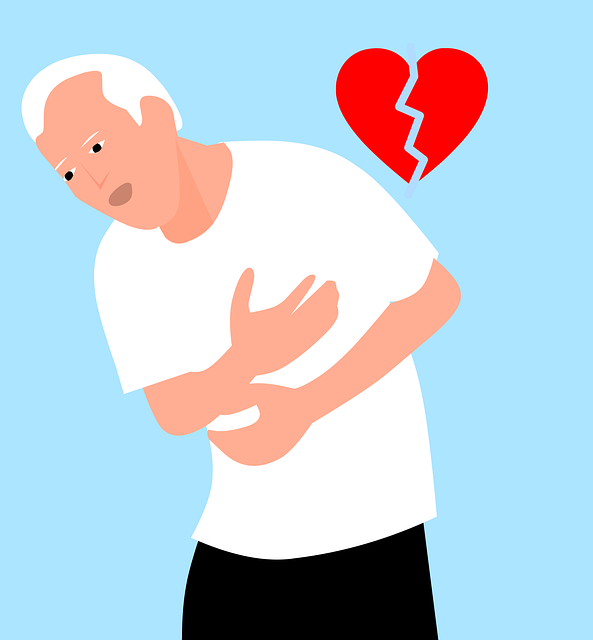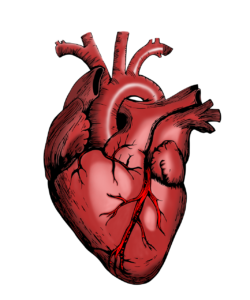## Understanding heart attacks and the role of aspirin
Heart attacks are a serious medical emergency that require immediate attention. A heart attack occurs when the blood flow to the heart is blocked, usually by a blood clot. This can cause severe damage to the heart muscle and can be life-threatening if not treated promptly.
One of the key treatments for a heart attack is the administration of aspirin. Aspirin, specifically baby aspirin, has been shown to be effective in preventing further damage to the heart during a heart attack. But how exactly does baby aspirin help?
How does baby aspirin help during a heart attack?
Baby aspirin, also known as low dose aspirin, is a medication that contains a lower dosage of aspirin compared to regular aspirin tablets. The active ingredient in aspirin is acetylsalicylic acid, which works by inhibiting the production of certain substances in the body that cause inflammation and blood clotting.
During a heart attack, a blood clot forms in one of the arteries supplying blood to the heart. By taking baby aspirin, you can help prevent the blood clot from growing larger and blocking the artery completely. This can reduce the extent of damage to the heart and improve the chances of survival.
Recommended dosage of baby aspirin for heart attack prevention
The recommended dosage of baby aspirin for heart attack prevention is usually 81 milligrams (mg) per day. This low dose is effective in reducing the risk of blood clot formation without significantly increasing the risk of side effects, such as stomach irritation or bleeding.
It’s important to note that the dosage may vary depending on individual circumstances and medical history. It’s always best to consult with a healthcare professional before starting any medication, including baby aspirin, to ensure the appropriate dosage for your specific situation.
The benefits of low dose aspirin for heart health
Low dose aspirin has been widely studied for its benefits in maintaining heart health. In addition to its role in preventing blood clot formation during a heart attack, low dose aspirin has been shown to reduce the risk of heart disease and stroke in individuals at high risk.
Studies have demonstrated that long-term use of low dose aspirin can help lower the risk of cardiovascular events, such as heart attacks and strokes, by reducing inflammation and preventing blood clots from forming in the arteries. This makes low dose aspirin a valuable tool in the prevention of heart disease and the maintenance of overall heart health.
Different types of aspirin and their effectiveness in preventing heart attacks
When it comes to preventing heart attacks, not all aspirin is created equal. There are different types of aspirin available, including brand-name options like Bayer aspirin, as well as generic versions.
While all forms of aspirin contain the same active ingredient, the effectiveness may vary due to differences in manufacturing processes and additional ingredients. However, research has shown that low dose aspirin, regardless of the brand, is effective in preventing heart attacks when taken as directed.
It’s important to choose a reputable brand and follow the recommended dosage guidelines to ensure the maximum benefit in preventing heart attacks.
When to administer baby aspirin during a heart attack
Time is of the essence when it comes to treating a heart attack. Administering baby aspirin as soon as possible can significantly improve the chances of survival and reduce the risk of long-term heart damage.
If you or someone around you is experiencing symptoms of a heart attack, such as chest pain, shortness of breath, and nausea, it’s important to call emergency services immediately. While waiting for medical help to arrive, chew and swallow one baby aspirin (81 mg) to help prevent further clotting and alleviate the severity of the heart attack.
Remember, every minute counts during a heart attack, and taking baby aspirin can be a life-saving measure until professional medical help is available.
How to properly chew and swallow baby aspirin during a heart attack
When taking baby aspirin during a heart attack, it’s essential to chew and swallow the tablet properly to ensure maximum absorption and effectiveness. Here’s a step-by-step guide on how to do it correctly:
- Remove one baby aspirin tablet from its packaging.
- Place the tablet in your mouth and chew it thoroughly.
- As you chew, allow the aspirin to dissolve in your saliva.
- After chewing, swallow the dissolved aspirin with a sip of water.
Chewing the baby aspirin helps to break it down into smaller particles, allowing for faster absorption into the bloodstream. By following these steps, you can ensure that the baby aspirin is properly administered and can begin working as quickly as possible.
Precautions and contraindications for taking baby aspirin
While baby aspirin can be a life-saving medication during a heart attack, it’s important to be aware of certain precautions and contraindications before taking it. Here are a few considerations:
- Allergies: If you are allergic to aspirin or have experienced an allergic reaction in the past, you should avoid taking baby aspirin.
- Bleeding disorders: If you have a bleeding disorder or are taking other medications that increase the risk of bleeding, consult with your healthcare professional before taking baby aspirin.
- Stomach ulcers: Baby aspirin can increase the risk of stomach ulcers and gastrointestinal bleeding. If you have a history of stomach ulcers or gastrointestinal issues, discuss with your doctor before taking baby aspirin.
- Medication interactions: Baby aspirin may interact with certain medications, such as blood thinners or nonsteroidal anti-inflammatory drugs (NSAIDs). It’s important to inform your healthcare professional about all the medications you are taking to avoid any potential interactions.
Always consult with a healthcare professional before starting any medication, including baby aspirin, to ensure it is safe and appropriate for your specific situation.
Other potential uses of baby aspirin for heart health
In addition to its role in preventing heart attacks, baby aspirin may have other potential uses for heart health. Research has suggested that low dose aspirin may be beneficial in the prevention of certain types of cancer, such as colorectal cancer, and may also have anti-inflammatory properties that can benefit overall cardiovascular health.
However, it’s important to note that these potential benefits are still being studied, and more research is needed to fully understand the extent of baby aspirin’s impact on these conditions. As always, it’s best to consult with a healthcare professional before considering baby aspirin for any condition other than its approved uses.
Conclusion and final thoughts on baby aspirin for heart attacks
Administering baby aspirin to a person experiencing a heart attack can be a life-saving measure. By inhibiting blood clot formation and reducing the severity of the heart attack, baby aspirin can significantly improve the chances of survival and minimize long-term heart damage.
It’s important to understand the recommended dosage and how to properly chew and swallow baby aspirin during a heart attack. Additionally, it’s crucial to be aware of any precautions or contraindications before taking baby aspirin and to consult with a healthcare professional for personalized advice.
While baby aspirin has shown great promise in preventing heart attacks and maintaining heart health, it’s essential to remember that it is just one part of a comprehensive approach to heart disease prevention. A healthy lifestyle, including regular exercise, a balanced diet, and routine medical check-ups, is key to maintaining optimal heart health.
In case of a heart attack, remember to call emergency services immediately and follow their instructions. Every minute matters, and taking baby aspirin can make a significant difference in the outcome of a heart attack.
To learn more about taking aspirin for heart attack prevention, visit MedlinePlus.



